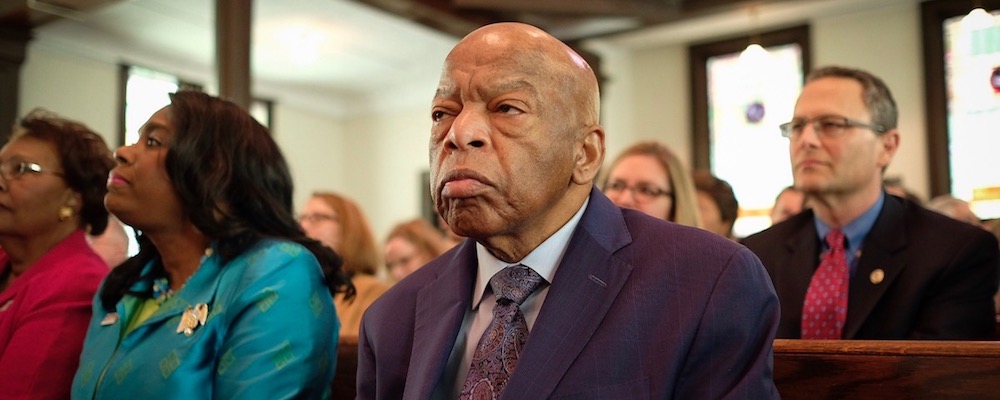‘John Lewis: Good Trouble’ Celebrates the Legacy of the Venerable Congressman and Civil Rights Icon
Sandra Miska
The struggles and triumphs of congressman John Lewis are examined and celebrated in the inspiring documentary “John Lewis: Good Trouble.” Director Dawn Porter not only pays tribute to the democrat from Georgia, but also drives home the point that the fight for our rights is far from over.
Now 80, Lewis, who is interviewed extensively in this film, had a passion for service years before the thought of going into politics ever entered his mind. Growing up in rural Alabama, he picked cotton in the fields from a young age. His family recognized his gifts, and his oldest brother even took on some of his chores in order to free up some of John’s time for him to focus on school. Later, when it was time for him to go to college, Jim Crow laws prohibited young Lewis from attending the local university. He sought to sue, but his mother’s fear of retaliation stopped him. Instead, he continued his education in Nashville, and his drive for change led him to the side of Dr. Martin Luther King Jr.
Lewis originally wanted to be a preacher — an endearing anecdote he likes to tell is that he preached to his family’s chickens as a little boy — but his servant’s heart led him to activism. Striking archival footage not only shows young Lewis speaking to reporters, but also him participating in marches and other protests, including the infamous march from Selma to Montgomery, Alabama. Even after being beaten so badly by law enforcement that he ended up with a fractured skull, he remained committed to nonviolent protest tactics. In present day, Lewis explains how he found “freedom in being fearless,” a profound sentiment, something that all those who have risked bodily harm and imprisonment to fight against injustice must have felt at some point.
The title “Good Trouble” comes from Lewis, as he uses the phrase to describe his activism against Jim Crow laws, voter suppression, and other injustices. One of the rare archival clips unearthed by Porter shows young Lewis leading nonviolent protest training, and, later, applying the methods at a restaurant sit-in during which black protestors sat at a counter reserved for white customers, incurring the wrath of angry racists. It’s one thing to read about these protests in history books and see them portrayed in film and television, but it’s another to see firsthand what the protestors had to endure, vicious taunts and threats of bodily harm.
Following the assassinations of Dr. King and Robert Kennedy, Lewis recalls how he felt compelled to run for office. During his long and fruitful political career, he has fought not only for black Americans, but for all those who are disenfranchised. Revealing interviews with Hillary Clinton, Alexandria Ocasio-Cortez, Nancy Pelosi, Bill Clinton and others paint a portrait of Lewis as a dedicated champion of the people. We also see firsthand Lewis interacting with ordinary citizens, their respect and admiration for him coming through loud and clear as they gravitate towards him in airports and other public spaces.
Lewis repeatedly speaks of the importance of changing the system from within, and his success as a politician can be credited partially to his ability to find common ground with his opponents, something that politicians on both sides of the political aisle today seem to increasingly struggle with. Early on, he distanced himself from more militant African-American leaders, remaining committed to Dr. King’s style of peaceful activism. If one ever wonders what Dr. King would be up to if he were alive today, they only need to look to Lewis, who continues to fight against voter suppression and campaign tirelessly for like-minded Democratic candidates. In the end, Lewis and Porter make it painfully clear that the fight for our rights is far from over, as the current administration is hellbent on closing polling sites and taking other actions that would lead to a lower voter turnout. It’s a sobering message, but with Lewis and others like him fighting and inspiring voters, there’s a light at the end of the tunnel.
“John Lewis: Good Trouble” premieres July 3 on VOD.

